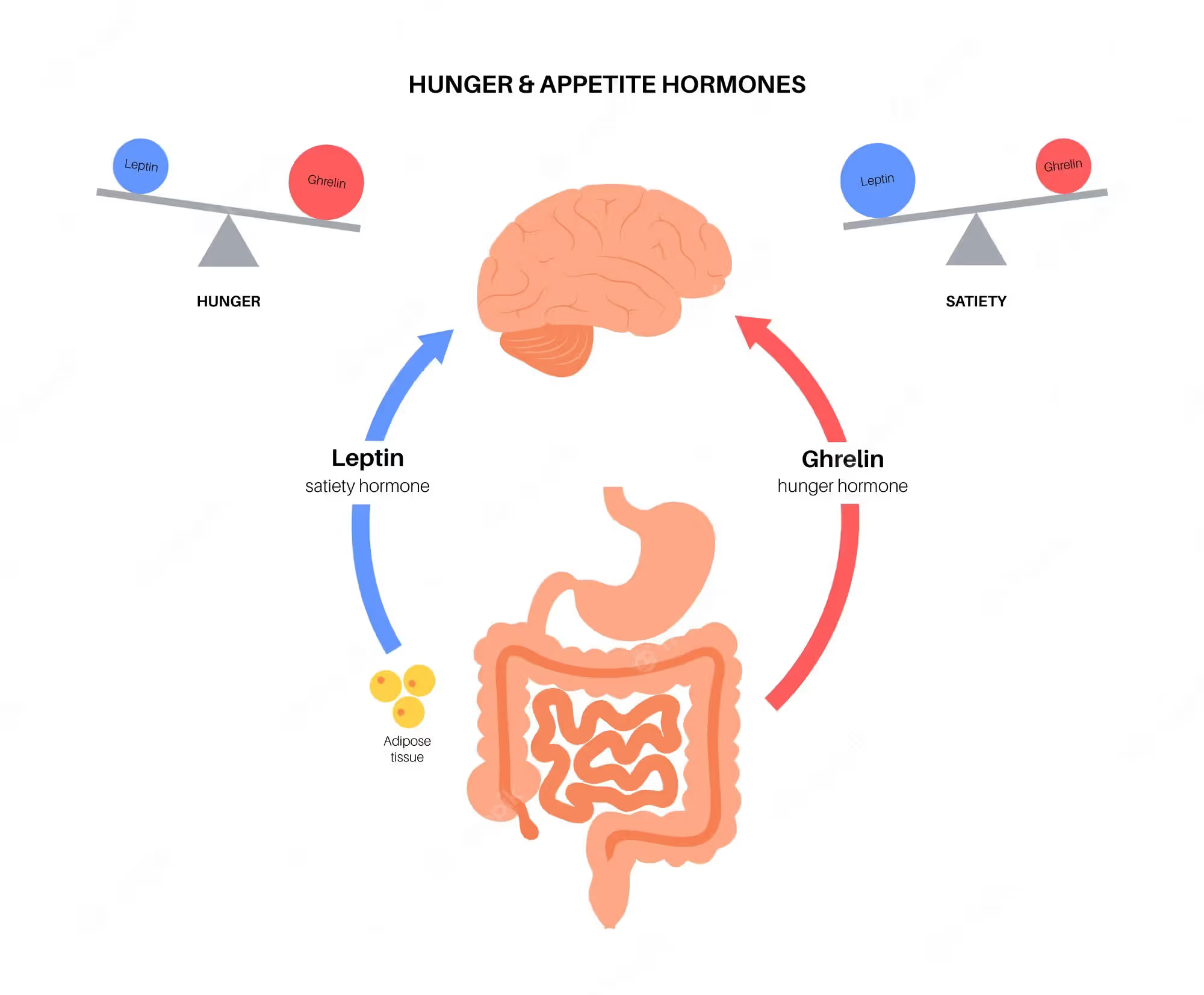How Does Stress Affect Appetite? The Impact of Stress on Your Hunger

Stress is an unavoidable part of life, and its effects can extend beyond our mental well-being. Did you know that stress can also have a significant impact on your appetite?
In this article, we will delve into the fascinating connection between stress and appetite, understanding how different individuals respond to stress, the role of hormones, and strategies for managing stress-induced eating patterns. So, grab a cup of tea, and let's explore the intriguing world of stress and appetite!
Appetite and Stress: A Complex Relationship
Appetite, often confused with hunger, refers to the desire to eat food, which can be influenced by various factors. Stress is one such factor that can disrupt our usual eating patterns. Research suggests that individuals respond to stress differently regarding their appetite. Approximately 40% of people tend to eat more, while another 40% eat less when stressed, leaving the remaining 20% unaffected. Additionally, those who engage in restrained eating, meaning they consciously limit their food intake, are more likely to overeat in response to stress.
The Science Behind Hunger Signals and Stress

When we experience stress, our body initiates a complex cascade of hormonal reactions to help us cope with the situation. One of the key players in this stress response is the hypothalamus, a region in the brain responsible for regulating various bodily functions, including the release of hormones.
The hypothalamus releases corticotropin-releasing hormone (CRH) in response to stress. CRH then signals the pituitary gland, a small gland located at the base of the brain, to release adrenocorticotropic hormone (ACTH). ACTH travels through the bloodstream to the adrenal glands, which are situated on top of the kidneys.
Upon receiving the signal from ACTH, the adrenal glands produce and release glucocorticoids, a class of steroid hormones. The most well-known glucocorticoid is cortisol, often referred to as the stress hormone. Cortisol plays a crucial role in regulating various physiological processes, including metabolism, immune response, and stress response.
In the context of appetite regulation, chronic stress and the subsequent release of cortisol can impact the balance of appetite-regulating hormones in our body.
Here are three key hormones involved:
- Leptin:
Leptin is a hormone produced by fat cells that helps regulate energy balance and appetite. It acts by signaling the brain to reduce food intake and increase energy expenditure. However, chronic stress and high levels of cortisol can lead to leptin resistance, where the brain becomes less responsive to the satiety signals sent by leptin. This can result in an impaired ability to control food intake and potentially contribute to overeating. - Ghrelin:
Ghrelin is a hormone primarily produced in the stomach and acts as an appetite stimulant. It signals the brain to increase hunger and food intake. During periods of chronic stress, cortisol can influence the release of ghrelin, leading to higher levels of this hunger-inducing hormone. Elevated ghrelin levels can make individuals more prone to overeating and seeking out calorie-dense foods. - Neuropeptide Y (NPY):
Neuropeptide Y is a neurotransmitter that is released in various parts of the brain, including the hypothalamus. It stimulates hunger and promotes food intake. Chronic stress and cortisol release can enhance the production of NPY, leading to increased appetite and cravings, particularly for high-calorie and carbohydrate-rich foods.
The interplay between these hormones and their dysregulation under chronic stress can create a perfect storm for overeating and weight gain. Increased cortisol levels can disrupt the normal functioning of leptin, ghrelin, and neuropeptide Y, leading to an imbalance in appetite regulation. This can result in heightened hunger, reduced satiety signals, and a greater tendency to consume more food, especially foods that provide immediate pleasure and comfort.
Short-Term Stress vs. Long-Term Stress
Interestingly, the duration of stress also plays a role in appetite regulation. Acute stress tends to suppress appetite, diverting energy towards handling the immediate situation. In contrast, chronic stress causes an increase in appetite-related hormones and a heightened sensation of hunger. This can result in overeating, especially when combined with emotional eating tendencies.
The Prefrontal Cortex and Loss of Control
The prefrontal cortex, responsible for regulating thoughts, actions, and emotions, can be impaired by stress. Studies have shown that stress reduces prefrontal cortex activity, leading to a loss of self-control. It's no wonder some people turn to food for comfort when faced with stress, as decision-making and impulse control become more challenging.
The Temptation of Hyper-Palatable Foods

Have you ever found solace in a bar of chocolate or your favorite comfort food during stressful times? There's a scientific explanation for this phenomenon. Research suggests that highly palatable foods, rich in sugar, salt, and fat, activate the brain's reward system similar to drugs. Women who reported higher stress levels were found to have a stronger inclination to eat hyper-palatable foods. These foods provide short-term pleasure and activate the brain's reward pathways, temporarily escaping stress.
Stress, Sleep, and Appetite
Lack of sleep, often caused by stress, can have unintended consequences on appetite. Sleep-deprived individuals tend to experience increased levels of ghrelin, the hunger hormone, and decreased levels of leptin, the hormone responsible for satiety. This hormonal imbalance can lead to increased feelings of hunger, irregular eating patterns, and a higher calorie intake with lower diet quality.
Strategies for Managing Stress and Eating Habits
While stress may be inevitable, there are ways to manage its impact on your appetite and overall well-being. Here are a few tips:
- Identify the root cause of your stress and take control of the situation where possible.
- Cultivate a support system of friends, family, or professionals who can provide emotional support during stressful times.
- Practice stress-reducing activities such as exercise, meditation, deep breathing, or engaging in hobbies that bring you joy.
- Be mindful of your eating habits and pay attention to your hunger and fullness cues. Avoid using food as a coping mechanism for stress.
- Maintain a balanced and nutritious diet to support your overall well-being.
- Get an adequate amount of sleep to help regulate your appetite and manage stress levels.
- Consider seeking professional help if you're struggling with chronic stress or emotional eating patterns.
Stress and appetite have a complex relationship, with stress affecting individuals differently. While some people may experience increased hunger and overeating in response to stress, others may lose their appetite.
Understanding the hormonal and neurological mechanisms at play can help us make informed choices about managing stress-induced eating patterns. By implementing strategies to manage stress and prioritize self-care, we can minimize the impact of stress on our appetite and maintain a healthy relationship with food.
Remember, taking care of your mental and emotional well-being is just as important as taking care of your physical health.